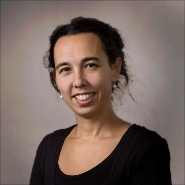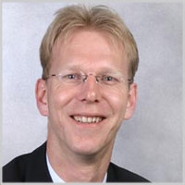
Fewer teaching positions, more lecturers
Bringing research and teaching closer together is part of the mission of Leiden University. The 'Career Policy for Academic Staff' working group that has draw up new guidelines for appointing academic staff discovered that the University has many members of staff who do not conduct research.
Too many teachers without a research remit
One of the conclusions of the working group - a finding suppported by the Executive Board - is that the number of teachers without a research remit is too high in comparison with those who are involved in research (lecturers, universitair docenten). For these teachers, it is not possible to base their teaching on current research. Every faculty employs teachers; they take care of the peaks in the curricula, or they have a professional practice (for example, psychologists at Social and Behavioural Sciences or lawyers at the Law Faculty). At Humanities, the staff who teach language skills are always native speakers. Teachers are and will continue to be needed for these functions.
Critical review of teaching staff
The working group was shocked at the number of teachers who do not conduct research, given that this conflicts with the University's policy of combining research and teaching. The Executive Board has now asked the working group to take a critical look at this group of teaching staff. One question to be answered is whether it is clear for all these teaching positions why they do not include a research element. In the coming years, many of these purely teaching positions will be replaced by lecturers. The teaching positions will not disappear completely, but the number of teachers will reduce and the number of leacturers will increase.
Students at the forefront of science
The embedding of research in teaching is mentioned explicitly in the University's mission statement. The aim is to put students at the forefront of research, in other words, to allow them to come into contact with the most up-to-date knowledge and the newest research methods. And there is more.

‘Creating knowledge’ is specific to science
Judy Mesman, Professor of Parenting and Education in the Multicultural Society and the new Dean of Leiden University College The Hague: ‘To convey knowledge to students, you have to discuss and use research findings in your teaching and you can only judge the weak and strong points of research if you have experience yourself with carrying out research. It is the very process of "creating knowledge" that is unique to academic education as opposed to institutions of applied science. It's very different from reading about research and not being involved in it yourself.' In her lectures Mesman uses video material, for example, taken from her own research to illustrate different concepts. She also explains precisely how she and her staff reach particular conclusions, based on the data from their research.

Research and teaching have positive mutual influence
Professor Koen Caminada, professor and scientific director at the Institute of Tax Law and Economics at the Law Faculty: ‘Teaching and research are closely interwoven and have a positive mutual influence. For students, the research component of a programme is essential for developing a range of 21st century skills. One practical problem is that we do not have enough teachers with a PhD to meet the demands from student numbers. Many people with a PhD opt to work outside academia, often because the terms and conditions are more favourable in the non-academic world. We need to go all out to try to keep post-docs within the university. And if that doesn't work, we need to look for good and highly motivated teachers who beside their work are also active in a practice that has added value for their teaching. That's important, too, although it's often overlooked.'
